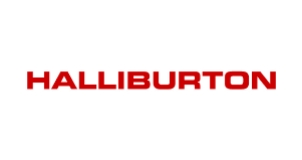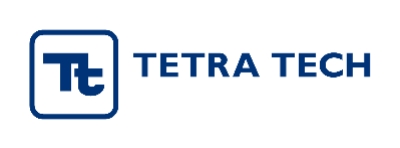Position Summary Description
Coordinates and operates SECI's generating resources and transmission facilities to ensure reliable and economic energy delivery to its member cooperatives while supporting the integrity of Florida's power grid in accordance with federal and regional standards.
Qualifications and Education Requirements
Bachelor of Science Degree in Electrical Engineering, Technology or related area. Five (5) years of experience in in system operations with experience performing duties as a Balancing, Interchange and Transmission Operator, or three (3) years of experience as a System Operator with Seminole Electric Cooperative Incorporated. Two (2) years of similar experience may be substituted for each one (1) year of education. NERC System Operator certification at the Balancing, Interchange, and Transmission Operator (BIT) level or higher.
Core Competencies: Adaptable, Collaborative, Conscientious, Critical-Thinking, Outcome-Driven and Professional
Technical Competencies/Skills:
•Maintain NERC Certified System Operator (BIT)
•NERC, FRCC and NAESB standards, practices and procedures and FERC Standards of Conduct
•Electric Power Principles and Components
•Interconnected Power System Operations
•Transmission Operation and Equipment Principles
•Balancing & Interchange Functions
•Power System monitoring and Control
•Economic Dispatch Principles
•Energy Accounting Functions
•Proficiency with Microsoft Office applications
Soft Competencies/Skills:
•Effective verbal/nonverbal, listening and written communications
•Emergency Decision-making
Essential Functions
General:
•Complies with all NERC reliability standards applicable to System Operations.
•Acts in compliance with Operating Instructions from the FRCC Reliability coordinator.
•Acts personally, and directs the actions of others, in taking actions necessary in emergency conditions to maintain the security of the interconnected grid and Seminole facilities. Such action may include interruption of firm customer loads.
•Acts in compliance with FERC Standards of Conduct
•Operates EMS supervisory control and data acquisition system to monitor and control power system equipment.
•Actively participates in the development, implementation of training and qualification of System Operator positions.
•Acts a team lead, provides work direction to junior team members while fostering continuous improvement.
•Submits preliminary reports on system disturbances to FRCC, NERC and DOE in accordance with reporting requirements.
•Performs other duties as applicable to the position or as assigned.
Balancing functions including, but not limited to:
•Maintain Generation to load balance in accordance with principles of economic dispatch, SECI procedures and NERC reliability standards.
•Ensure compliance with NERC Control Performance and Disturbance standards.
•Conduct routine hourly balancing duties and reacting to system events, alarms, disturbances and emergencies.
•Monitor system load levels and implement load management in accordance with pre-determined strategies.
•Monitor fuel consumption and development of estimates of fuel requirements and provides such to the appropriate parties assuring adequate fuel availability.
•Review actual load levels and resources status for the present day and consults with Operations Planning staff on revisions.
•Develop power supply cost estimates and provides estimates to marketing agent to be used for interchange sales and purchases, consistent with existing interchange contracts and the approved resource plan and in accordance with Seminole's FERC Standards of Conduct.
Interchange functions including, but not limited to:
•Ensure interchange transactions are appropriately tagged, reviewed and approved in accordance with NERC reliability standards and NAESB Business practices.
•Ensure transmission service reservations (TSR’s) are submitted and approved on OASIS in accordance with NERC reliability standards and NAESB Business practices.
•Ensure that the inadvertent energy accounts are kept in balance according to NERC reliability standards and FRCC criteria.
•Implement frequency and time error correction schedules and maintain logs in conformance with NERC reliability standards.
Transmission Operations including, but not limited to:
•Respond to Real-time Contingency Analysis (RTCA) violations to include development of mitigation strategies using operator power-flow tools.
•Coordinates and directs the safe and proper operation of all transmission-switching operations in compliance with NERC reliability standards, FRCC procedures and Seminole safety and clearance procedures.
•Monitors transmission system conditions, both internal and external to SECI, and takes required necessary actions to ensure system remains within defined operating limits.
•Reviews, and processes, including coordination with neighboring systems, requests for transmission facility outages in accordance with NERC reliability standards, FRCC procedures and System Operations procedures.
•Writes and executes switching orders to provide clearance for work on high voltage equipment in accordance with System Operations procedures.
•Prepares and submits reports on planned and unplanned transmission outages.
•Coordinates with member control centers and transmission providers during transmission outages affecting Member delivery points to facilitate restoration of member load.
•Monitors transmission system conditions, both internal and external, and takes required necessary actions to ensure system remains within defined operating limits.
•Assures the maintaining and updating of system prints, diagrams and the EMS displays of generation and transmission system equipment.
Physical Requirements
Must be able to follow established protective measures including wearing required personal protective equipment (PPE). Must possess a valid driver’s license and acceptable Motor Vehicle Report.
Working Conditions
Must work rotating shifts and holidays as required. Normal office conditions with routine hands-on work with electrical control and indication systems and Supervisor Control and Data Acquisition (SCADA) system equipment. Subject to being called to work at any time. Some travel and work outside of normal business hours. While working in certain areas of the plant there is the potential for exposure to hazards typical of an industrial working environment.























